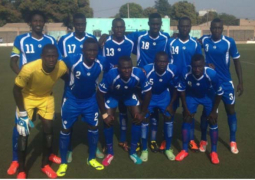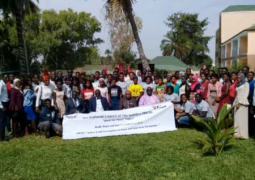Violence against children is an issue of serious concern happening all over the world, and The Gambia is no exception.
And a type of violence meted out to the young in the society is child or early marriage, which is common in many parts of the world, claiming millions of victims annually - and hundreds of thousands of injuries or death resulting from abuse or complications from pregnancy and childbirth.
This practice must be stopped, as it is a barrier to girl’s education, as young girls drop out from school to get married, which impacts negatively on the community as a whole and on the well-being of future generations.
According to the International Center for Research on Women (ICRW), 100 million girls will be married before the age of 18 in the coming decade.Most will be in sub-Saharan Africa and the Asian subcontinent.
In Niger, for example, 77% of women in their early 20s were married as children. In Bangladesh, 65% were. Child marriage also occurs in parts of the Middle East, including Yemen and the rural Maghreb.
In the United States, child marriage is still permissible in some states, with parental or judicial consent.
Globally, according to UNICEF, 36% of women aged 20-24 were married or in a union, forced or consensual, before they reached 18.
An estimated 14 million girls between the ages of 15 and 19 give birth each year. They are twice likely to die during pregnancy or childbirth than women in their 20s.
Girls who marry between the ages of 10 and 14 are five times as likely to die during pregnancy or childbirth as women in their early 20s.
Early or child marriage has many causes. These include poverty, protecting the girl’s sexuality or ensuring the girl marries as a virgin, gender discrimination, inadequate/unenforceable laws, among others.
Whilst this situation persists, and millions of children are forced to marry early, their rights are denied, such as the right to education; the right to be protected from physical and mental violence, including sexual abuse;to the enjoyment of the highest attainable standard of health;to rest and leisure, and to participate freely in cultural life; to not be separated from parents against their will;to protection against all forms of exploitation affecting any aspect of their welfare; and to eventual employment.
Many charters and conventions the world over have condemned and prohibit all forms of abuse and violence against children.
The Universal Declaration of Human Rights, the Convention on the Rights of the Child, the Convention on the Elimination of All Forms of Discrimination Against Women and the Convention Against Torture and Other Cruel, Inhuman or Degrading Treatment or Punishment (among other charters and conventions) all directly or indirectly condemn and forbid the mistreatment of girls in early or child marriage.
“In its efforts to protect all children in The Gambia from abuse, exploitation and violence, the Gambia government over the years has taken legislative measures to respond to the problem, such as the Tourism Offences Act 2007, the Children’s Act 2005, and the Trafficking in Persons Act 2007,” said UNICEF-Speak Africa Youth spokesperson at the consultative workshop.
The YPM and its strategic partners such as UNICEF, Child Protection Alliance, Ministry of Basic Education and FAWEGAM seek to promote the implementation of children’s rights laws to protect children in The Gambia.
All are, therefore, called upon to fight violence against children for the good and fruitful progress of our society.
“Child abuse is a heinous and personally damaging crime.”
John Sentamu



